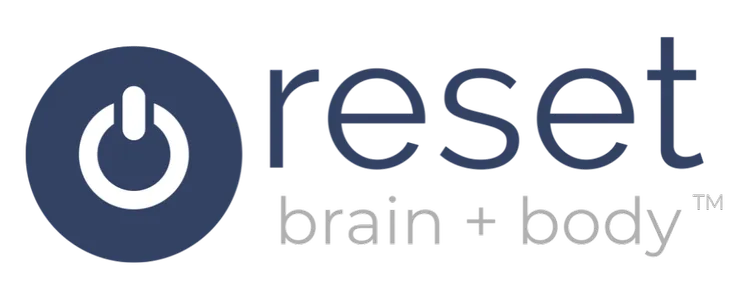Welcome to…
A Pathway To Joy
100+
Volunteers
1000+
Lives Touched
3+
Years supporting
About Us
Our Mission
Our mission is to empower individuals, unite communities, and create lasting positive change. Your involvement is the driving force behind our success. Whether you volunteer your time, support our initiatives, or become a donor, your contribution matters.

Frequently Asked Questions
What Does A Pathway To Joy Do?
A Pathway to Joy is a nonprofit organization dedicated to mental health awareness and suicide prevention, with a strong emphasis on community, faith, and education. Its mission is to provide resources, support, and encouragement to individuals and families facing mental health challenges. A Pathway to Joy envisions a world where individuals feel supported, valued, and equipped to overcome life’s challenges with joy, resilience, and faith.
What is A Pathway To Joy’s Mission?
To create a world where every individual feels valued, understood, and empowered to seek help and live a life with hope and purpose.
What Type Of Events Does A Pathway To Joy Host?
A Pathway to Joy hosts events that promote mental health awareness, build community, and provide education and support. These events often combine wellness activities, faith-based resources, and engaging experiences to encourage connection and healing.
Here are examples of the types of events we organize:
1. Awareness and Fundraising Events
• Steps Against Suicide 5K Walk and Mental Health Fair: A community walk aimed at raising awareness about suicide prevention and mental health, featuring wellness activities like yoga, free food, and resource booths.
• Merchandise Fundraisers: Events tied to the sale of branded items like sweatshirts to raise funds and spread the nonprofit’s message.
2. Wellness Workshops
• Activities like yoga sessions, mindfulness exercises, and self-care tutorials to help participants build healthy coping mechanisms.
3. Faith-Based Conference
• Planned faith-based mental health conferences integrating spiritual growth with mental health education and support.
4. Student-Led Initiatives
• Programs at colleges through student ambassadors, including bake sales, wellness activities, and mental health clubs.
• Camp Joy is a summer program designed to bring hope and healing to children and families through fun, engaging, and restorative activities. With a focus on mental health and emotional well-being, the camp fosters a supportive environment where participants can connect, grow, and experience joy. By programming activities that encourage play, mindfulness, and community, Camp Joy creates lasting memories while promoting resilience and mental wellness.
5. Community Connection Activities
• Group gatherings, educational seminars, or support groups to create a safe space for individuals to share and learn about mental health resources.
What Is A Pathway To Joy’s Longterm Goal?
A Pathway to Joy envisions establishing a transformative space—a mental health house surrounded by Camp Joy cabins—designed to offer holistic support, healing, and community connection.
This long-term project would serve as a sanctuary for individuals and families seeking hope and restoration.
The Mental Health House
• A welcoming central hub offering free counseling services for individuals and families.
• Spaces for workshops, support groups, and faith-based mental health programs.
• Resources for mental health education, coping strategies, and personal growth.
• A peaceful, home-like environment fostering comfort and connection.
Camp Joy Cabins
• Small, cozy cabins designed for retreats, family stays, or individual reflection.
• Activities focused on mental health restoration, mindfulness, and faith.
• Opportunities for children and families to participate in therapeutic outdoor programs and bonding experiences.
The Vision This space would provide:
•Access for All: Free services ensuring that cost is never a barrier to mental health care.
• A Lasting Impact: A safe haven for healing and joy that promotes resilience and well-being in every visitor.
The mental health house would be a tangible representation of the nonprofit’s mission: to bring hope, healing, and joy to all who need it.
Where Does My Donation Go?
Donations to A Pathway to Joy directly support the organization’s mission of promoting mental health awareness, suicide prevention, and community healing. Here’s how your contribution makes an impact:
1. Programs and Events
• Funds community events like the Steps Against Suicide 5K Walk, Camp Joy, and faith-based mental health conferences.
2. Camp Joy Development
• Supports the creation of Camp Joy activities, offering a safe, mindfulness camp for children.
3. Education and Awareness
• Enables mental health education initiatives, including resources for schools, churches, and communities.
• Funds training for student ambassadors to raise awareness on college campuses.
4. Future Projects
• Contributes to the long-term goal of building a mental health house, a sanctuary for healing that will include free counseling, workshops, and community resources.
Every dollar donated is a step toward creating hope, healing, and joy for individuals and families in need. Your generosity helps save lives and bring light to those in darkness.

Our Trusted Partners




Office: 200 S Wing St
#328 Northville, MI
48167 United States
Call: (734)335-0283
Email: [email protected]
